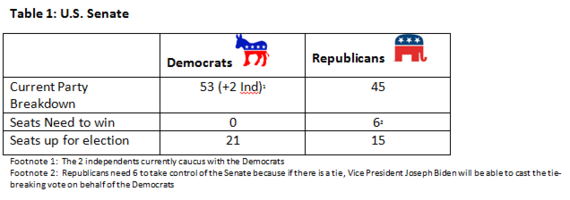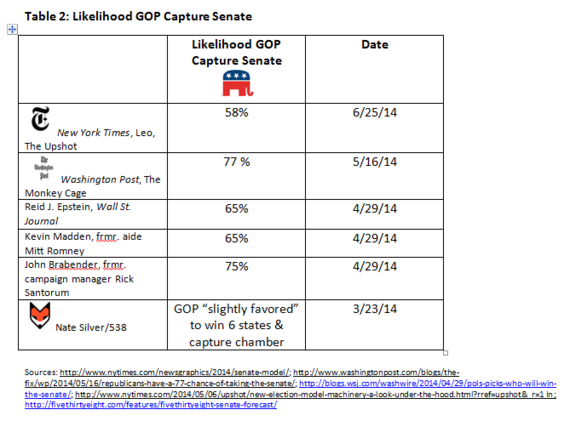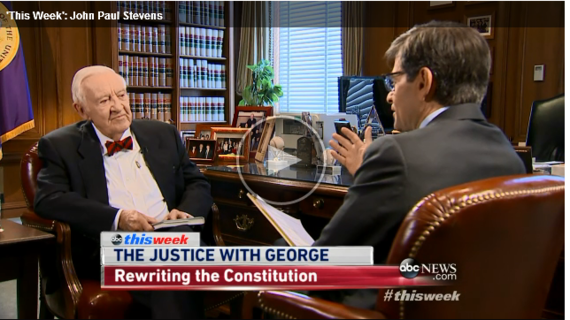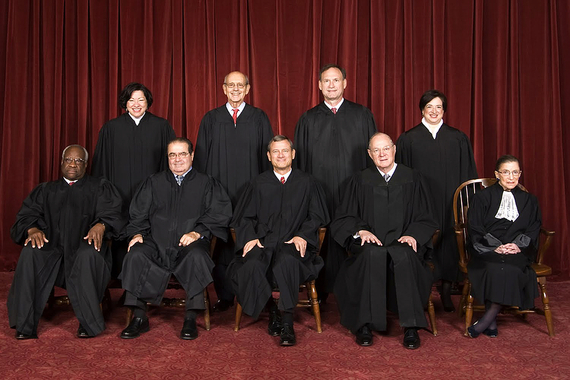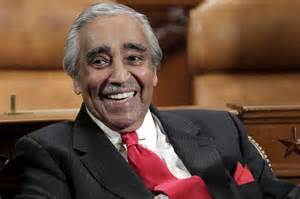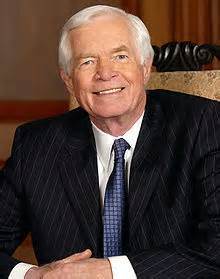It's the time of year when the Supreme Court not only hands down high profile rulings, but the justices announce their intention to retire. For a while many thought Justice Ruth Bader Ginsburg, now 81, and the oldest serving member on the Court, might step aside. 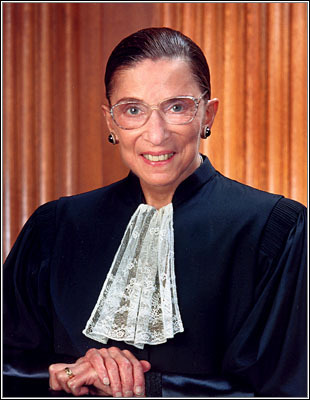
But despite her age, health challenges, and the fact that she has served on the Supreme Court for more than 20 years, Ginsburg put that rumor to rest last year when she said she's "likely to stay on the court for at least another two years."
Ginsburg's announcement might not have mattered as much to Democrats at that time. After all, in March of 2013, it didn't look nearly as possible as it does now for Republicans to capture the Senate. But more than a year later, the odds of the GOP taking the Senate have increased dramatically.
In order to gain control of the Senate, Republicans need six additional seats. They currently hold 45 seats to the Democrats 53, plus the two independents that caucus with them. If Republicans pick up five seats, Vice President Biden would be able to cast the tie-breaking vote on behalf of the Democrats.
There are a total of 36 seats up for this election cycle, 21 currently held by Democrats and 15 by Republicans. As The Hill reported earlier this week, the GOP is "in the strongest positions to win back the Senate since losing it eight years ago." As Table 2 shows, this assessment is echoed by most prognosticators and forecast models.
Given these odds, which increasingly favor the Republicans, Ginsburg should not wait another year, she should retire now. In the interest of all the issues she cares so deeply about, she should step down and allow President Obama to nominate a justice who shares her judicial philosophy. If she waits until the end of next term, the chances of the Senate confirming a nominee of this kind decrease dramatically.
And while Ginsburg is the oldest member of the Court, she is not the longest serving justice or the only one over 75. In addition to Ginsburg, there are three other justices that are 75 or older: Antonin Scalia (78), Anthony Kennedy (77), and Stephen Breyer (75). Appointed in 1986 by President Reagan, Scalia is also the longest serving member, followed by Kennedy and Clarence Thomas.
It makes little sense for Scalia, Kennedy or Thomas to retire now given that both the White House and Senate are controlled by the Democrats. Moreover, despite serving two years longer than Ginsburg, Thomas is just 66-years-old.
But is not the case for the more liberal Stephen Breyer. At 75, Breyer is six years younger than Ginsburg and he hasn't faced as many health issues. If, however, the GOP wins in November, he will be at least 78 before it is even possible for the Democrats to reclaim the upper-chamber. Moreover, if the Republicans win the White House in 2016, he would be 82 before it would be possible for the Democrats to take it back. Given this reality, it makes at least as much sense for Breyer to seriously consider retirement at this point as it does Ginsburg.
In a recent interview, former Supreme Court Justice John Paul Stevens told This Week's George Stephanopoulos that he thinks it is proper for a justice to take the reality of the "politics" of the day into account when deciding whether it is the right time to retire. "It's an appropriate thing to think about your successor, not only in this job."
Over the last 34 years, 10 justices have retired from the Court. In terms of the timing, half of these justices retired during midterm election years, three others retired during a presidents first term and two during a presidents second term. More importantly, in making these decisions several seem to have followed Stevens' lead and considered the political reality of the moment. For instance, former Justices Harry Blackmun and David Souter chose to retire during Clinton's and Obama's first terms. In doing so, they paved the way for the appointment of justices who share their more moderate-liberal philosophy (Breyer and Sotomayor respectively).
It is never an easy question to ask -- but it is one everyone who is lucky enough to get to this point has to think about: do aging leaders have an obligation to help develop a younger generation who can follow in their footsteps?
Just the other day New York Congressman Charles Rangel (D) won a heated primary in his district guaranteeing that at the age of 84 he will be returning to Congress for a 23rd term. The same day at the age of 76, Senator Thad Cochran won the Republican primary in Mississippi.
One of the questions that came up during these races was whether the Rangel and Cochran had done enough during their long careers to develop a new generation of leaders? Speaking on WNYC's The Brian Lehrer Show, a voter from Rangel's district put it this way:
My argument for time for Rangel to go now is really about the need to develop a new generation of leadership. And despite his 43 years in Congress he has never done that... and at one point he said if there was anyone else he thought was qualified to do this job he would support that person. Well shame on him if in 40 years in office at the center of the black political universe here he has not developed that next generation of leadership. You have to do that in the private sector you have to do that in the non-profit sector.... Succession planning is very much a part of your obligation as a leader.
And while the justices often like to consider themselves above politics, that isn't the case. They may first and foremost be trained jurists and committed to the law, but everything from their appointment to the Court to their work on the bench is informed by politics. That is as it should be. After all, the Supreme Court sits at the apex of the third branch of government.
There is no question Justices Ginsburg and Breyer have energy, all their faculties, and every right to remain on the bench, but that doesn't mean they should. As the voter from Rangel's district said, succession planning is the obligation of all leaders. And when you are a Supreme Court justice, the political realities of the time in which you are nearing retirement age not only matter, but should be taken into account.
If either Ginsburg or Breyer resign this summer we can expect a contentious, drawn out, and divisive confirmation battle. But that is nothing like we are bound to see if they wait until after November when odds are the Republicans will take the Senate.

